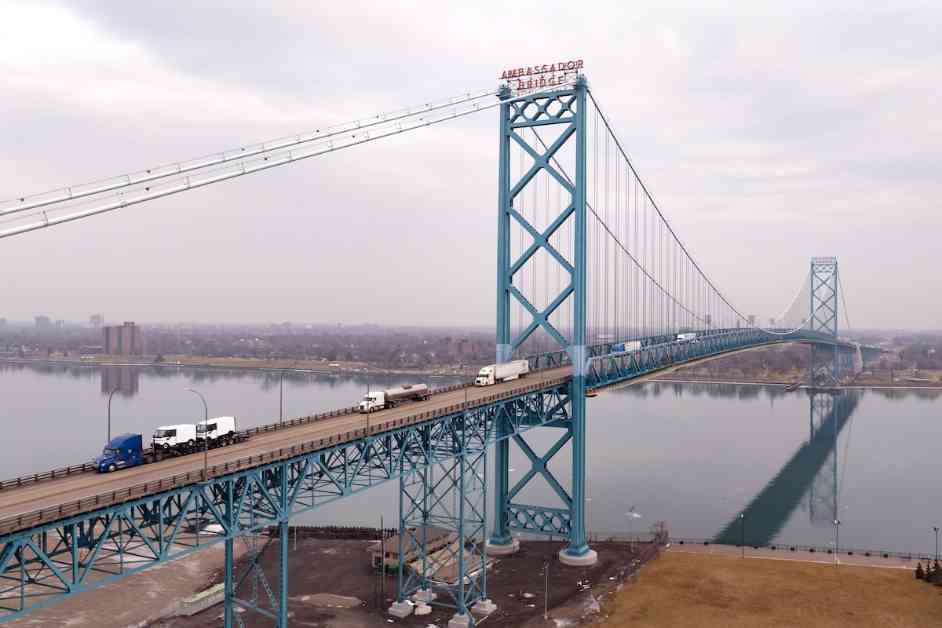The impact of Trump’s tariffs on consumer prices has been a hot topic of discussion recently, with experts predicting potential consequences that could affect everyday Americans. As the United States grapples with tariffs on gas imported from Mexico and Canada, the looming threat of increased prices at the pump has sparked concerns among consumers and businesses alike.
President Donald Trump’s decision to impose tariffs on gas imported from Mexico and Canada has sent shockwaves through the oil industry and raised fears of rising gas prices across the country. The tariffs, which were initially set to go into effect imminently, have been met with mixed reactions from experts and industry insiders.
One of the key players in this unfolding drama is President of Mexico Claudia Sheinbaum, who recently reached a deal with the Trump administration to delay the tariffs for a month. This temporary reprieve has provided some breathing room for gas prices to stabilize, but the long-term impact of these tariffs remains uncertain.
In addition to tariffs on gas from Mexico, import duties on Canadian and Chinese goods are also on the horizon. These tariffs are set to take effect on Tuesday, further complicating the economic landscape and potentially driving up prices for a wide range of consumer goods.
The New York Times has warned that the impact of these tariffs could be far-reaching, with potential consequences for both oil companies and consumers. Tom Kloza, the Oil Price Information Service’s global energy analysis lead, has expressed concerns about the potential fallout from the tariffs, noting that “It’s going to be very, very messy” if President Trump follows through with his plans.
The United States relies on a wide range of goods imported from Canada, including electricity, natural gas, and uranium. These imports play a crucial role in powering the country and supporting various industries, making the impending tariffs a cause for concern for many.
President Trump has cited a national emergency related to undocumented immigrants and the flow of the drug fentanyl as reasons for imposing the tariffs. While the administration has emphasized the need to address these pressing issues, critics have raised questions about the potential economic impact of these tariffs on consumers and businesses.
The looming tariffs have raised fears about potential price hikes at the pump, with experts warning that consumers could soon be feeling the pinch at gas stations across the country. Sung Won Sohn, a professor of finance at Loyola Marymount University, has cautioned that “Consumers are going to be clearly worse off” if the tariffs are implemented, highlighting the potential negative impact on everyday Americans.
As the situation continues to unfold, experts are closely monitoring the potential impact of these tariffs on gas prices and consumer goods. Patrick De Haan, a GasBuddy analyst, has predicted that fuel prices could rise in certain regions of the country, leading to localized increases in the cost of gas for consumers.
Despite the uncertainty surrounding the tariffs, one thing is clear: the potential consequences of these measures could have far-reaching implications for consumers, businesses, and the broader economy. As gas prices fluctuate and the cost of goods imported from Canada and China remains in flux, Americans are bracing for potential price hikes that could impact their daily lives.
In the coming weeks and months, all eyes will be on President Trump and his administration as they navigate the complex economic landscape created by these tariffs. As consumers and businesses alike grapple with the potential fallout from these measures, one thing is certain: the impact of Trump’s tariffs on consumer prices is a topic that will continue to dominate headlines and shape the economic landscape for the foreseeable future.














